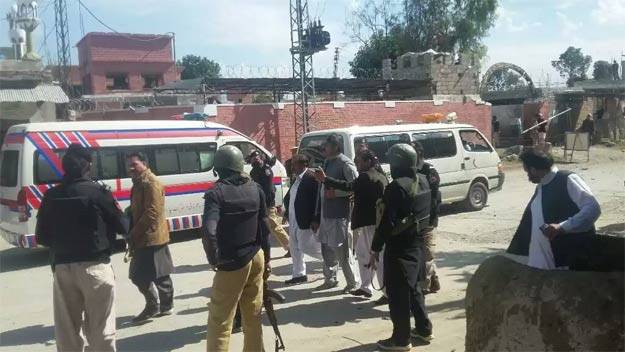The attack on the court complex in Charsadda proves that this new terror offensive requires our utmost attention and constant vigilance, and perhaps more importantly, that constant vigilance pays off. The attack was foiled by what can only be described as police heroics, averting what could possibly have been another massive carnage. While questions over gaps in intelligence and forewarning still persist, our focus should be on closing these gaps and not simply bemoaning their existence.
In March 2016, an attack, claimed by Jamat-ul-Ahrar (JuA), targeted the same local court in Charsadda’s Shabqadar area killing 17 people. This one, with three armed suicide bombers instead of one, was much more threatening had it succeeded. The rank and file of the local police, already on alert to possible attacks through warnings by the intelligence agencies, reacted fast and responsibly, gunning the terrorists down before they could do much damage. While the injuries and loss of life are lamentable, credit must be given where it is due. Where the police authorities are lambasted for their failings – such as the inadequate security in the Peshawar police academy attack – they must be praised where they succeed. This was an act of bravery and it should be recognised as such.
However, this is the second attack by JuA in a short period of time. It is become increasingly clear that the activities of this group always seem to slip our radar. Previous attacks have escaped the notice of intelligence agencies and the group seems to strike at will all over the province. Were it not for a general alert issued to all sensitive government buildings, this attack might have bypassed our security precautions too. This is a glaring problem to which the state needs to pay immediate attention.
But asking the state to simply do more is not enough. Intelligence gathering in the vast and populated areas of Pakistan is a difficult prospect, and no amount of effort can produce a foolproof system. Gaps and blind spots exist and will continue to do so. The civilian population, with a little help from the government, can try to plug this gap to the maximum extent. There should be a dedicated and streamlined system where the public can report suspicious activity. Communal intelligence gathering and further empowerment of our police constables on the ground can increase the chances of foiling future plots. We must react to this threat together as a community to truly make a change.






